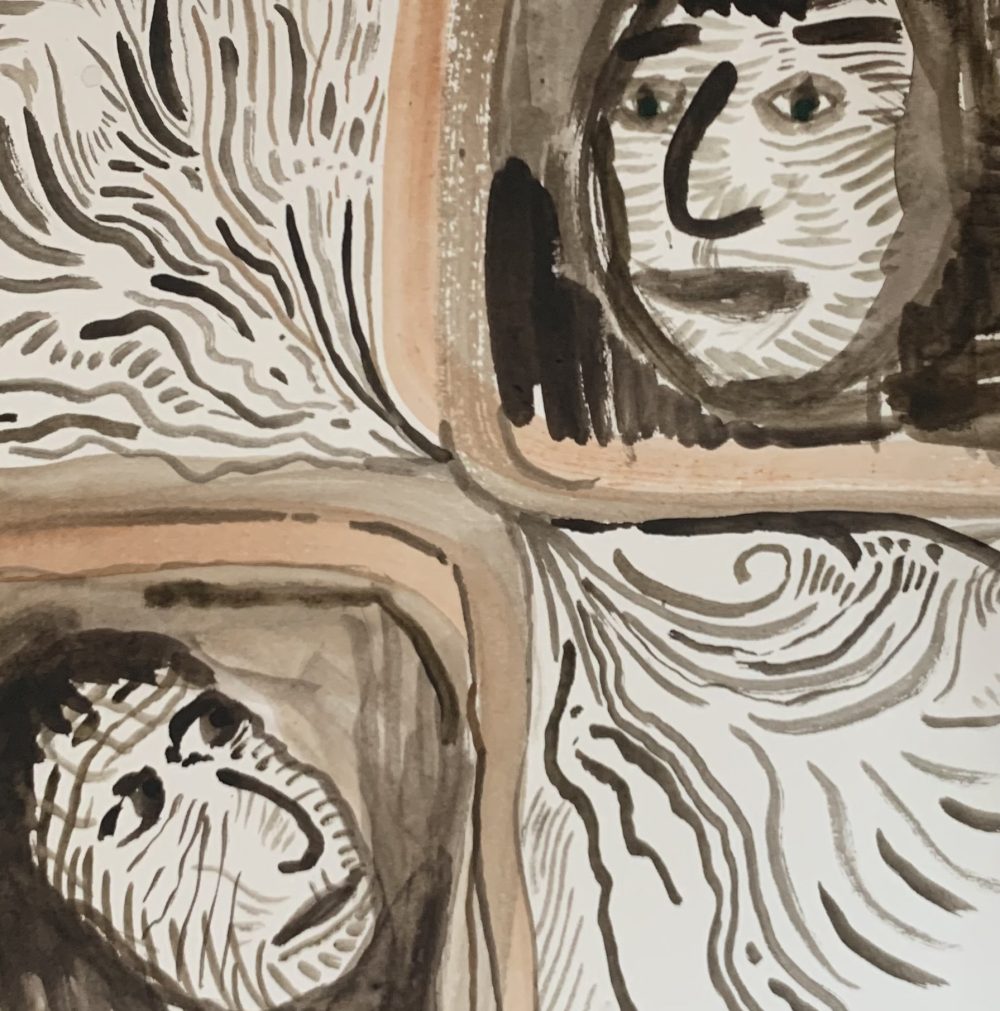“We take what is transitory – money, fame, power, relationship – to be real and base our lives on achieving what cannot last – happiness, wealth, fame, and respect. When we base life on what can be taken from us, we give power over our lives to anyone who can take it away. We become dependent on others and on society for a sense of well-being.”
Ken McLeod, Wake Up to Your Life, 92
The first time I came across Buddhism’s concept of the eight worldly winds (also called worldly concerns or dharmas), I was startled by its simple truth. The eight worldly winds come in four opposing pairs: gain vs. loss; happiness vs. suffering; praise vs. blame; and good reputation vs. bad reputation.[1] Buddhism teaches that our endless oscillation between these coupled states keeps us tossing in the storm of samsara. I immediately recognized myself: I live my life hoping for and clinging to the “positive” states of gain, happiness, praise, and good reputation while fearing and avoiding their “negative” counterparts: loss, suffering, blame, and bad reputation. The eight worldly winds give us a bird’s eye view of human suffering—we are flags tossed helplessly by those winds, whipping from elation to despair, trying desperately to stay on the left side of the flagpole (gain/happiness/praise/good reputation). Trying to make those impermanent states last.
The antidote to the eight winds is not to rise above the weather like the bird that has the view, but rather to identify with the still center, the flagpole. Remain equanimous. Feel and accept sadness, pain, and loss—don’t rush it or try to flee from under its dark shadow. Sit there until the shadow passes. And when delight and happiness come, embrace those too, revel in them, but know they are impermanent. Gain feels good, but loss is inevitable, so why expect continuous gain? You may pride yourself on your good reputation, but you have no control over what people say about you. Good can turn to bad as quickly as the wind changes direction. Praise and approval feed you, but again, praise will evaporate and you’ll feel blamed and shamed for something soon. These teachings make visceral sense to me; I feel the truth of them in my bones. The pivot point of hope/fear drives our responses. When we live in hope for the “good” stuff and in fear for the “bad” stuff, we are caught blindly in samsara, and we do not experience life as it is.
I have come back to this teaching so often that I decided a few months ago to start a sewing project based on the eight worldly winds. By sewing the concept I might drive it even more deeply into my consciousness; by exploring what these states would look and feel like if they were fabric flags, I might find out more about myself while sharing this profound teaching with others.
I also decided I would document the project as it progresses, which feels risky to me. But another teaching (this one specifically from Shambhala—Chögyam Trungpa’s Sacred Path of the Warrior), is that is we really want to experience all the rawness and intensity of life, we must emerge from our cocoons, the thick ego-wrappings of habituated behaviour that keep us muffled and safe. To document a project-in-progress feels vulnerable—what if I fail? (loss/suffering). What if nobody is interested? (insignificance/bad reputation). What if people think it’s stupid? (blame/bad rep). And then there is the other concern—what if revealing artistic ideas before they are fully hatched drains them of their energy? (suffering/loss). Those questions don’t need answers. Let me simply begin.
In brief, I decided to sew eight pennants or vertical flags representing the eight winds. First, I thought I’d do four with front and back representing the pairs. That seemed to truly show their oppositional nature, but if I ever want to display the pennants, viewers would have to walk around them and may not be practical, depending on the exhibit space. I struggled a bit over the size of the pennants and the design. I did a mock-up of good reputation, but decided it was too small and I’d like the words to be consistently displayed horizontally across the top of each pennant. In my mind’s eye, I could see the eight finished pennants strung up on a clothesline with wooden clothes pegs, four pairs tossing in the breeze from an electric fan nearby.

Prototype
I had to choose the translations of the word pairs that worked for me—particularly happiness/pleasure and suffering/pain. Happiness and suffering seem more capacious than pleasure/pain, so I’ll go with those. And as for good reputation/ bad reputation, translators seem to prefer words like fame/disgrace or fame/insignificance, but while insignificance is ubiquitous, fame is not widely applicable. How many of us experience fame? Good and bad rep are states we all struggle with.
I made a lot of sketches and a plan. We’ll see how it goes. I am going to begin with gain because I have so many ideas about it. I’ll post along the way. Mostly my inner critic keeps poking me saying, but is this meaningful work? Does this matter? Well, it matters to me. So, I choose to ignore her.

Doodling and planning
If you are interested in knowing more about the eight worldly winds, I’ve provided links to three good sources: the first is a brief description of the concerns by Judy Lief; the second is a series of videos by Jetsunma Tenzin Palmo; and the third is a compilation of quotations on the worldly concerns by Pema Chodron (go to page 40-41):
https://www.lionsroar.com/buddhism-by-the-numbers-the-eight-worldly-concerns/
https://tricycle.org/dharmatalks/eight-worldly-concerns/
https://pemachodronfoundation.org/wp-content/uploads/2017/03/The-Essential-Pema-Study-Guide.pdf (pages 40-41)
[1] The source is verse 29 of Nagarjuna’s Letter to a Friend. There are various translations of the pairs from their original: a variation of happiness/suffering is pleasure/pain and variations on good reputation/ bad reputation are fame/insignificance, ill-repute, censure, or disgrace.

Go for it Madeline!
LikeLike